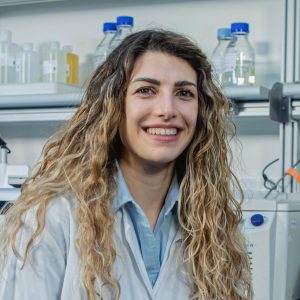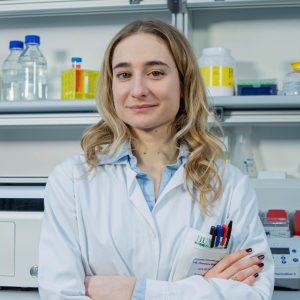Research Group
Bonecchi Group
Chemokine Biology Lab
Our research is aimed at understanding the role of chemokines and chemokine receptors in the modulation of leukocyte migration from the bone marrow to the tumor sites, as well as in their polarization and function in disease progression, with the final goal of harnessing leukocyte activity against cancer.
The challenge
There are numerous signs of the predictive potential of circulating and tumor-associated subpopulations of leukocytes, in different types of tumors. For example, in high grade gliomas (HGGs), a still incurable cancer, patients with a worse prognosis have more infiltrating neutrophils and a significantly higher neutrophilia. Dissecting the role played by neutrophils or other leukocytes populations in different models of cancer and rewiring their pro vs anti-tumoral behavior – by leveraging chemokines signaling pathways – could open up new personalized approaches in the treatment of oncological diseases.
Main research areas
Targeting chemokine receptors to harness neutrophil anti-tumor immune response
The presence of neutrophils in tumor tissue and high neutrophilia have been associated with poor prognosis in different oncological contexts. The chemokine receptors CXCR4 and CXCR2 are essential regulators in controlling neutrophil retention and release from the bone marrow, as well as their effector functions, although their role in the antitumoral or protumoral polarization of neutrophils has not yet been properly investigated. We are performing in vitro and in vivo experiments suggesting that CXCR2 pushes neutrophils differentiation toward a protumoral phenotype.
Study of atypical chemokine receptor ACKR2 in tumor biology and haematopoiesis
Atypical Chemokine receptors (ACKRs) are key regulators of leukocyte migration and immune responses. We discovered that ACKR2 expressed by hematopoietic progenitor cells (HPC) controls the release of neutrophils with antimetastatic functions. Taking advantage of ACKR2-gene-targeted mice, the role of ACKR2 in the regulation of hematopoiesis has been investigated and preliminary data suggest that ACKR2 induces reprogramming of myelopoiesis by epigenetic mechanisms. We are currently studying if and how targeting hematopoietic ACKR2 may provide an innovative strategy to obtain long-term functional reprogramming of neutrophil differentiation.
Selected publications
Chemokines as Regulators of Neutrophils: Focus on Tumors, Therapeutic Targeting, and Immunotherapy.
Immunotherapeutic early-phase clinical trials and malignant gliomas: A single-center experience and comprehensive immunophenotyping of circulating leukocytes.
Neutrophil diversity and plasticity in tumour progression and therapy.
Multiple Roles for Chemokines in Neutrophil Biology.
One Clever Macrophage Checkpoint.
Chemokines and Chemokine Receptors: New Targets for Cancer Immunotherapy.
Chemokines sound the alarmin: The role of atypical chemokine in inflammation and cancer.
ACKR2 in hematopoietic precursors as a checkpoint of neutrophil release and anti-metastatic activity.
Atypical matters in myeloid differentiation.
ERK-dependent downregulation of the atypical chemokine receptor D6 drives tumor aggressiveness in Kaposi sarcoma.
Group members





